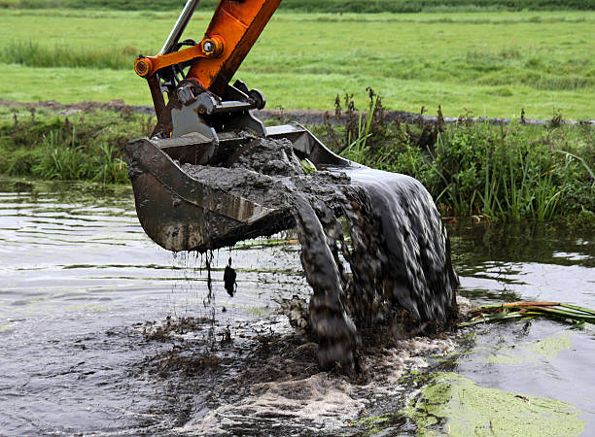Dredging to boost security of South East Nigeria waterways

Photo Credit: Pexels
The proposed dredging of the Orashi river from Oguta lake to link to the Atlantic ocean has been approved by the Federal Government. The river, which is located in the lower Niger River basin, and is a tributary of Oguta Lake in southeastern Nigeria will be dredged to enable larger vessels to come into the State of Imo, which is located in the South-East geopolitical zone of Nigeria.
The dredging work, which is being accompanied by the establishment of a naval base in Oguta, will enable the Nigerian state to improve maritime security as well as stimulate economic activities in the area. This work by the Nigerian Navy’s Geographic Department is part of a wider surveying project of the River Niger, which started from Lokoja and is currently at Burutu. Once completed, the Federal government will be responsible for organising the dredging of the waterways.
The Hydrographer of the Nigerian Navy is set to visit and survey the area to find the most appropriate and cost effective method of achieving the State’s mandate. Widening of the channel will allow larger naval vessels to access the waterways meaning that the Navy can effectively investigate any security challenges in the area. Currently, oil producing areas of the state of Imo are subject to crude oil theft, pipeline vandalism, and sea piracy. The government hopes that a naval presence will help mitigate these recurring incidents.
Opening access of Oguta Lake and Orashi River is expected to allow the state of Imo to lead Nigeria’s gas industrialization activities. Additionally, the project is expected to create jobs and stimulate economic activities in the area which will boost the state's economy. Other cities in Nigeria such as Lagos and Calabar, have experienced immense economic growth due to the presence of a naval base, Imo is hoping to receive similar benefits.
While the advice given in this editorial content has been developed using the best information available, it is intended purely as guidance to be used at the user’s own risk. No responsibility is accepted by CEDA or by the Intent Communications Ltd or by any person, firm, corporation or organisation who or which has been in any way concerned with the furnishing of information or data, the compilation, publication or any translation, supply or sale of this Guidance for the accuracy of any information or advice given herein or for any omission herefrom or from any consequences whatsoever resulting directly or indirectly from compliance with or adoption of guidance contained therein even if caused by a failure to exercise reasonable care.